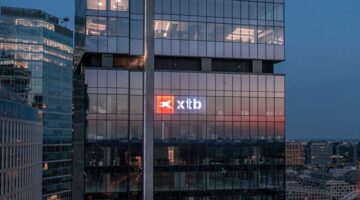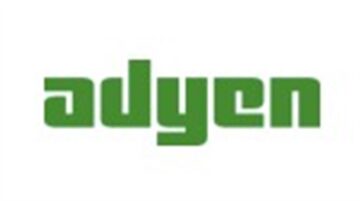
In a landscape marked by
digital transformation, the intersection of innovation and regulatory
compliance is at the forefront of discussions. Major tech players, armed with
substantial resources and capabilities, are increasingly positioned as pioneers
of groundbreaking innovations that extend far beyond the immediate demands of
regulatory frameworks.
This trend is exemplified by the
current dynamics surrounding the European Union’s Digital Markets Act
(DMA), where a consortium of European companies, led by Schibsted and Allegro,
is challenging major tech corporations to involve them in the compliance
process.
The DMA Challenge: A Quest for Collaboration
The DMA, introduced by the
European Union to foster increased competition and consumer choice within the
digital realm, designates major tech entities such as Alphabet, Amazon, Apple,
Meta, Microsoft, and ByteDance as gatekeepers.
The act outlines guidelines
aimed at mitigating the dominance of these tech giants, promoting a level
playing field for smaller entities. However, the collective plea from
Schibsted, Allegro, and smaller players suggests a deeper layer to the
narrative, implying that major tech corporations might be on the verge of
innovations that surpass the immediate demands of regulatory compliance.
The Echo of Henry Ford: Beyond Immediate Expectations
At the heart of this discourse
lies Henry Ford’s iconic quote, “If I had asked people what they wanted,
they would have said faster horses.” The irony in Ford’s words resonates
as major tech players, in their pursuit of visionary breakthroughs, may be
steering the course of innovation beyond what regulatory frameworks anticipate.
The European companies’ challenge to be involved in the DMA compliance process
reflects a nuanced understanding that major tech corporations, with their
audacious pursuits, may be on the cusp of transformative innovations that
transcend immediate regulatory expectations.
The plea from European
companies implies a delicate balance between regulatory compliance and the
potential stifling of visionary endeavors. It is a recognition that while
regulatory frameworks are crucial for ensuring fair competition, they must not
inadvertently impede the natural progression of groundbreaking innovations
pursued by major tech corporations. The call for involvement in the compliance
process underscores the importance of a collaborative approach that considers
the broader landscape of innovation beyond the confines of immediate regulatory
demands.
A Nuanced Interplay: Navigating Uncharted Waters
In navigating the DMA dilemma,
the financial services trade industry must remain attuned to the evolving
dynamics between major tech players and regulatory frameworks.
As the March 6 deadline for DMA
compliance approaches, the industry awaits responses from major tech players on
their commitment to inclusivity and adherence to the new EU rules.
The nuanced interplay between regulation
and innovation, exemplified by the DMA discourse, prompts industry
professionals to navigate these uncharted waters with a keen understanding of
the delicate equilibrium required for sustained progress.
In a landscape marked by
digital transformation, the intersection of innovation and regulatory
compliance is at the forefront of discussions. Major tech players, armed with
substantial resources and capabilities, are increasingly positioned as pioneers
of groundbreaking innovations that extend far beyond the immediate demands of
regulatory frameworks.
This trend is exemplified by the
current dynamics surrounding the European Union’s Digital Markets Act
(DMA), where a consortium of European companies, led by Schibsted and Allegro,
is challenging major tech corporations to involve them in the compliance
process.
The DMA Challenge: A Quest for Collaboration
The DMA, introduced by the
European Union to foster increased competition and consumer choice within the
digital realm, designates major tech entities such as Alphabet, Amazon, Apple,
Meta, Microsoft, and ByteDance as gatekeepers.
The act outlines guidelines
aimed at mitigating the dominance of these tech giants, promoting a level
playing field for smaller entities. However, the collective plea from
Schibsted, Allegro, and smaller players suggests a deeper layer to the
narrative, implying that major tech corporations might be on the verge of
innovations that surpass the immediate demands of regulatory compliance.
The Echo of Henry Ford: Beyond Immediate Expectations
At the heart of this discourse
lies Henry Ford’s iconic quote, “If I had asked people what they wanted,
they would have said faster horses.” The irony in Ford’s words resonates
as major tech players, in their pursuit of visionary breakthroughs, may be
steering the course of innovation beyond what regulatory frameworks anticipate.
The European companies’ challenge to be involved in the DMA compliance process
reflects a nuanced understanding that major tech corporations, with their
audacious pursuits, may be on the cusp of transformative innovations that
transcend immediate regulatory expectations.
The plea from European
companies implies a delicate balance between regulatory compliance and the
potential stifling of visionary endeavors. It is a recognition that while
regulatory frameworks are crucial for ensuring fair competition, they must not
inadvertently impede the natural progression of groundbreaking innovations
pursued by major tech corporations. The call for involvement in the compliance
process underscores the importance of a collaborative approach that considers
the broader landscape of innovation beyond the confines of immediate regulatory
demands.
A Nuanced Interplay: Navigating Uncharted Waters
In navigating the DMA dilemma,
the financial services trade industry must remain attuned to the evolving
dynamics between major tech players and regulatory frameworks.
As the March 6 deadline for DMA
compliance approaches, the industry awaits responses from major tech players on
their commitment to inclusivity and adherence to the new EU rules.
The nuanced interplay between regulation
and innovation, exemplified by the DMA discourse, prompts industry
professionals to navigate these uncharted waters with a keen understanding of
the delicate equilibrium required for sustained progress.
- SEO Powered Content & PR Distribution. Get Amplified Today.
- PlatoData.Network Vertical Generative Ai. Empower Yourself. Access Here.
- PlatoAiStream. Web3 Intelligence. Knowledge Amplified. Access Here.
- PlatoESG. Carbon, CleanTech, Energy, Environment, Solar, Waste Management. Access Here.
- PlatoHealth. Biotech and Clinical Trials Intelligence. Access Here.
- Source: https://www.financemagnates.com//fintech/innovation-beyond-compliance-understanding-the-dma-dilemma/
- :is
- :not
- :where
- a
- Act
- adherence
- aimed
- Alphabet
- Amazon
- and
- anticipate
- Apple
- approach
- approaches
- ARE
- armed
- AS
- asked
- At
- audacious
- Balance
- banner
- BE
- between
- Beyond
- breakthroughs
- broader
- by
- bytedance
- call
- capabilities
- challenge
- challenging
- choice
- collaborative
- Collective
- commitment
- Companies
- competition
- compliance
- considers
- consortium
- consumer
- Corporations
- course
- crucial
- Current
- Cusp
- deadline
- deeper
- demands
- digital
- Digital Transformation
- discourse
- discussions
- dma
- Dominance
- dynamics
- echo
- endeavors
- ensuring
- entities
- Equilibrium
- Ether (ETH)
- EU
- European
- european union
- evolving
- expectations
- extend
- fair
- far
- faster
- field
- financial
- financial services
- For
- Ford
- forefront
- Foster
- frameworks
- from
- giants
- groundbreaking
- guidelines
- had
- Have
- Heart
- henry
- henry ford
- However
- HTTPS
- i
- iconic
- if
- immediate
- importance
- in
- inadvertently
- Inclusivity
- increased
- increasingly
- industry
- Innovation
- innovations
- intersection
- introduced
- involve
- involved
- involvement
- irony
- IT
- jpg
- Keen
- landscape
- layer
- Led
- Level
- lies
- major
- March
- marked
- Markets
- May..
- Meta
- Microsoft
- might
- mitigating
- must
- NARRATIVE
- Natural
- Navigate
- navigating
- New
- of
- on
- outlines
- People
- pioneers
- plato
- Plato Data Intelligence
- PlatoData
- players
- playing
- positioned
- potential
- process
- professionals
- Progress
- progression
- promoting
- prompts
- pursuit
- quest
- quote
- realm
- recognition
- reflects
- Regulation
- regulatory
- Regulatory Compliance
- remain
- required
- resonates
- Resources
- responses
- Reuters
- rules
- s
- Said
- Services
- smaller
- steering
- substantial
- such
- Suggests
- surpass
- Surrounding
- sustained
- tech
- tech giants
- that
- The
- their
- Them
- These
- they
- this
- to
- trade
- Transformation
- transformative
- Trend
- uncharted
- underscores
- understanding
- union
- verge
- visionary
- wanted
- Waters
- What
- while
- with
- within
- words
- would
- zephyrnet









